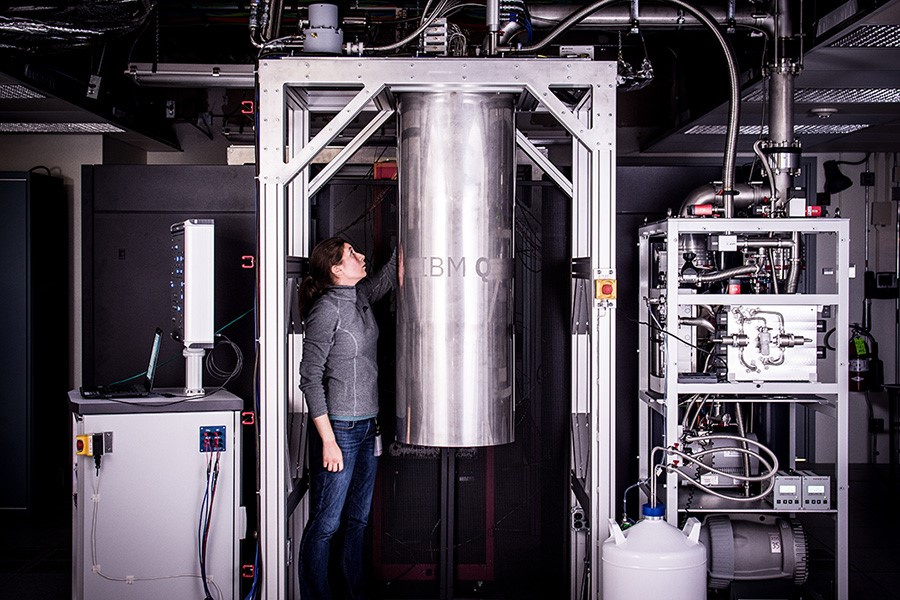Quantum news from IBM: two powerful new-type processors were put into operation

In March of this year, IBM announced the launch of a new project called IBM Q. Within its framework, work is underway on new-generation chips - quantum processors. The IBM Q initiative turned out to be quite successful, after all, only about two months had passed, and the staff of the corporation had already created two powerful processors. The first quantum developments of the company were open to users about a year ago. All this time, quantum processors have served a good purpose — scientific research. Currently, users have already conducted about 300,000 quantum experiments based on these chips associated with the IBM Cloud platform.
Now, two more processors have been added to the previous developments of the company. The first is a 16-qubit processor, which is designed to work in the scientific field. It is available for developers, programmers and researchers in the field of quantum algorithms. The 16-qubit processor allows for more complex experiments than the former, 5-qubit processor, which was part of the IBM Quantum Experience platform. Beta access to the new product is available upon request from the IBM Q experience . And the new Software Development Kit is available on GitHub .
As for the second processor, it is 17-qubit, designed for commercial use. The architecture is significantly improved here, the processor is much more powerful than the previous versions. Actually, this is the most powerful quantum processor ever created by the company. When working on a project, scientists and engineers had a clear task - to create a processor two times more productive than the one that now works in the IBM Cloud.
“Significant advances in processor development will allow IBM to create 50 qubit processors or even more productive chips in the near future. With their help, it will be possible to demonstrate the advantages of quantum systems compared to conventional ones, ”said Arvind Krishna, vice president and head of IBM Research and Hybrid Cloud. “These updates to quantum systems, available through the IBM Cloud, allow us to imagine how new applications will work — we can reach new horizons that were unavailable in the era of traditional computer computing.”
In total for a year more than three times, it was possible to increase the number of qubits for their quantum processors. They can work in areas that are inaccessible to traditional computers, even very productive ones. Quantum processors can help look for new drugs, materials (for example, high-temperature superconductors that retain superconductivity at room temperature), work at the core of AI, help protect data, manage financial flows. In general, with the help of quantum processors, experts hope to perform the following tasks:
• Fast processing of huge databases
• Optimization of processes whose nature is close to the so-called traveling salesman problem
• Analysis and processing of scientific data with the identification of certain patterns
• Decomposition of numbers into simple factors using the algorithm Shor
For example, scientists will be able to explore complex chemical reactions in search of new chemical compounds. Now a lot depends on the number of qubits of quantum processors. Quantum computers can allocate patterns, dependencies between individual data, even where traditional computing systems cannot cope with this task.

To describe the characteristics of the computing power of the systems, a new metric is needed, since the criteria used to assess the performance of conventional processors and computer systems are not applicable here. Therefore, the company introduced a new metric Quantum Volume. This metric takes into account the quantity and quality of qubits, the coherence of various channels and the number of errors in operations. In the near future, IBM plans to increase the number of qubits in a single processor to 50 and above. And in the next few years, IBM is planning to further improve its quantum systems, making them much more productive.
